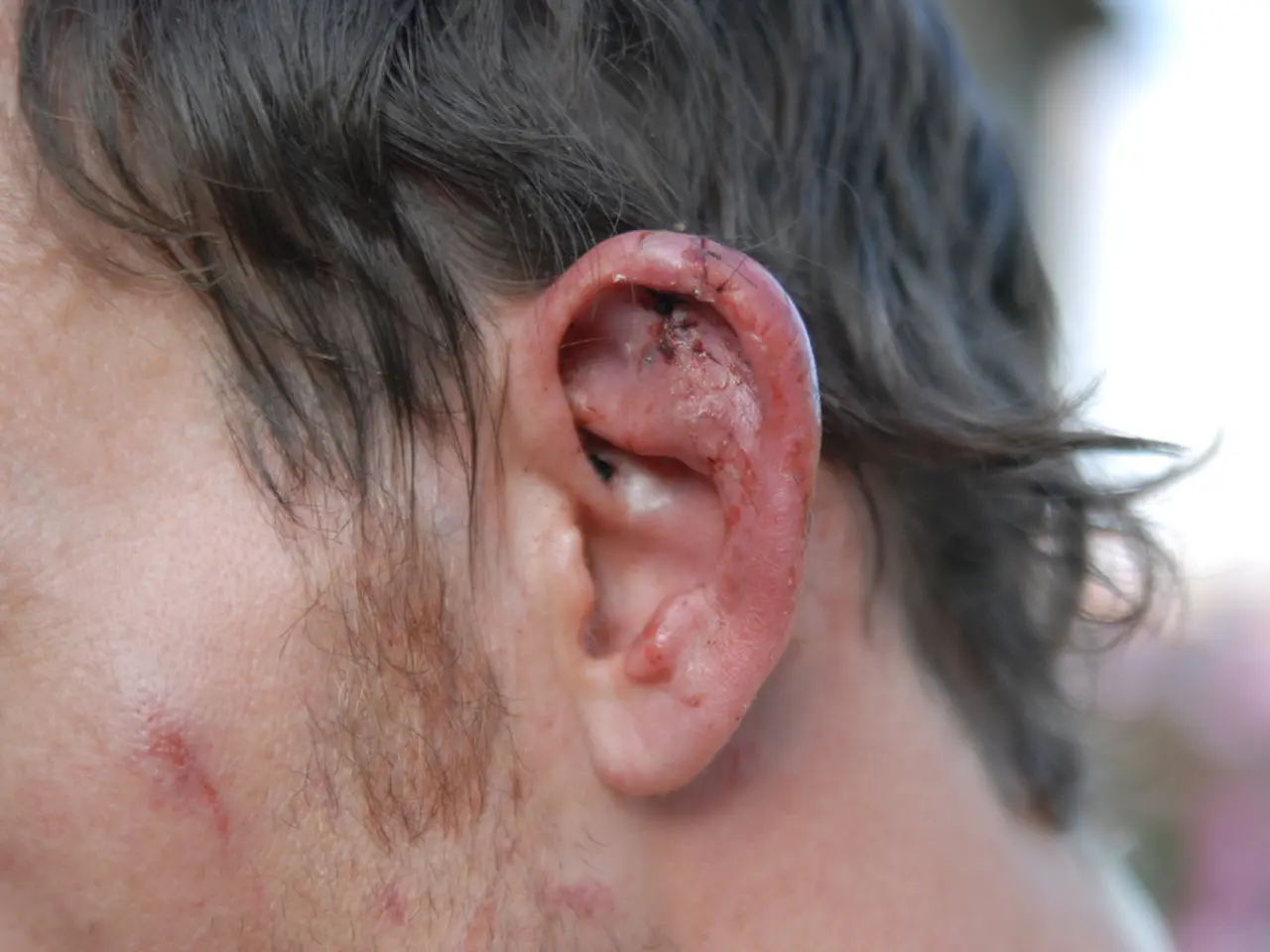Cancer and Low Hemoglobin Levels: Unraveling the Link
Layman's Guide to Managing Anemia with Cancer
Feeling drained during cancer treatment? It might be anemia. Here's what you need to know about this common issue and how to combat it.
Anemia is a common side effect of cancer and its treatments. It happens when the body doesn't have enough red blood cells to carry oxygen throughout the body, making you feel exhausted, dizzy, and cold.
But don't worry, this isn't a unique issue for cancer patients. Many people deal with anemia due to reasons like iron deficiency or excessive bleeding during menstruation. However, if you have cancer or are undergoing treatment, your healthcare team will be on high alert for anemia as it's very common.
Dana Angelini, MD, a hematologist and oncologist, emphasizes the importance of identifying the exact cause of anemia. "We never leave anemia as its own diagnosis because when we understand the cause, we can determine the best treatment," she says.
The link between anemia, cancer, and its treatment
Anemia doesn't cause cancer, and you may have anemia for reasons unrelated to cancer. But if you have cancer, your healthcare team will be monitoring for anemia since it's so prevalent. Up to 90% of cancer patients experience anemia due to:
- Chronic bleeding caused by solid tumors
- Reduced red blood cell production or destruction when cancer affects bone marrow
- Inflammation caused by cancer cells
- Kidney dysfunction related to cancer treatment
- Deficiencies in iron, vitamin B, and folate
Anemia and cancer treatment
Any cancer treatment can increase your risk of anemia. Sometimes, it's due to how the treatment is given, while other times, it's due to the side effects of treatment affecting your ability to stay hydrated and get essential nutrients.
Chemotherapy, immunotherapy, radiation therapy, and targeted therapy can all lead to anemia. Cancer treatments that raise your risk include:
- Chemotherapy, affecting up to 70% of people receiving this treatment
- Immunotherapy, which may cause inflammation and, in rare cases, harm red blood cells
- Radiation therapy, causing bone marrow dysfunction, especially when focused on the chest or pelvic area
- Targeted therapy, which can damage bone marrow and affect red blood cell production
Treating anemia when you have cancer
Treating anemia is essential to reduce symptoms, improve energy levels, better handle cancer treatment, and prevent anemia from worsening other chronic conditions.
Your treatment options may include medications that stimulate red blood cell production, supplements given through an IV, red blood cell transfusions for severe cases, and reducing cancer treatment if it's causing anemia. The specific treatment depends on the cause of the anemia.
Tips for avoiding anemia with a cancer diagnosis
If you're dealing with cancer, following these tips can help reduce your risk of developing anemia:
- Avoid excessive alcohol, which can harm bone marrow
- Eat a well-rounded diet to ensure you're getting vital nutrients
- Report any unusual symptoms immediately to get treated for anemia and identify other health issues that might cause anemia
Remember, treating everything that's happening to your body, not just the cancer itself, is crucial when dealing with cancer.
- Maintaining a balanced diet rich in iron, vitamin B, and folate can help prevent anemia, a common issue not only for cancer patients but also for those with other medical-conditions.
- The link between anemia and cancer can be complex, with chronic diseases such as cancer often leading to reduced red blood cell production or destruction, inflammation, and kidney dysfunction.
- In addition to cancer treatments like chemotherapy, immunotherapy, radiation therapy, and targeted therapy, factors such as physical inactivity, mental-health concerns, and improper nutrition can increase the risk of anemia.
- Ensuring mental-health, health-and-wellness, fitness-and-exercise, and nutrition are all prioritized can contribute to a stronger body, potentially reducing the chances of anemia and improving overall quality of life during cancer treatments.








